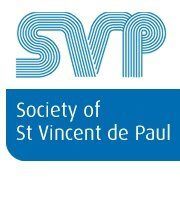
By Ann Marie Foley - 30 December, 2015
 The shortfalls between income and expenditure range from around €40 to €200 per week for working age households in receipt of social welfare, according to the Vincentian Partnership for Justice.
The shortfalls between income and expenditure range from around €40 to €200 per week for working age households in receipt of social welfare, according to the Vincentian Partnership for Justice.
In 2015, social welfare did not meet the cost of a Minimum Essential Standard of Living (MESL) for 191 of 214 urban sample households examined in research by the Vincentian Partnership for Justice.
This situation is forecast to worsen in 2016 in spite of some positive measures announced in Budget 2016.
“These shortfalls are immense. Increases in social welfare payments as well as investment in public services are required in order to bridge this gap,” stated Caroline Fahey, Social Policy Development Officer, Society of St Vincent de Paul (SVP), who quoted the research in her 28 December blog.
 The Vincentian Partnership for Justice examines whether or not social welfare and low paid work allow different household types to have a Minimum Essential Standard of Living (MESL) – a standard of living that meets the physical, psychological and social needs of the individual/household.
The Vincentian Partnership for Justice examines whether or not social welfare and low paid work allow different household types to have a Minimum Essential Standard of Living (MESL) – a standard of living that meets the physical, psychological and social needs of the individual/household.
A full time minimum wage job is not always adequate for a MESL either.
High housing and childcare costs in particular mean that the minimum wage often falls far short of what is necessary.
The research showed that the Living Wage, which would allow an individual working a 39 hour week to meet all of their minimum needs, is €11.50 per hour.
This is significantly higher than the minimum wage of €9.15 per hour (in 2016) and shows that the minimum wage is insufficient to meet the high cost of living.
“A strategy is needed to ensure that every household and family in Ireland has an income which is adequate to meet their needs. This requires increasing social welfare payments, tackling the problem of low pay for those in work, and tackling the cost and availability of services including childcare, housing, health and education,” stated Caroline Fahey.
She added that the current National Action Plan for Social Inclusion runs from 2007-2016, and the current plan is to be extended to 2017 to allow time for the development of its successor.
This will be formulated by a new Government and gives it the opportunity to show commitment to making a positive impact on the lives of individuals, children and families who are on a low income.
“We need to see commitments from all election candidates that if they are elected, social welfare payments will be increased, the Living Wage will be introduced progressively and that quality public services will be provided,” stated Caroline Fahey.
She lists the recession measures and issues which have put essential basic needs beyond the reach of many families:
-social welfare payments cut severely and not restored
-job losses, reductions in pay and working hours and increased taxation
-reforms to the One Parent Family Payment have cut incomes of lone parents in employment, making it more difficult for lone parents to take up employment, education or training in the future.
-cuts to social welfare payments for young adults, especially the homeless and those in low income households.
On the positive side Child Benefit has been maintained as a universal payment and there have been some increases. Also Family Income Supplement has increased, and the numbers of children and families benefiting have also increased.
![]()
In its JUST.NOW Christmas 2015 Justice Briefing the Vincentian Partnership for Social Justice (VPSJ) addressed the issue of homelessness and the affordability of housing.
It stated that in Dublin in the second quarter of 2015 the average monthly cost of renting a one bedroom dwelling was €908.30.
So a single person would need to earn €14.35 per hour (based on a 37.5 hour week) to afford such accommodation along with the other elements of a Minimum Essential Standard of Living (MESL).
A one parent household with one adolescent would need €17.65 per hour to afford a two-bedroom dwelling in Dublin (which is costs an average monthly €1178.61).
On the other hand if social housing was available to such a household would be able to rent and meet all the elements of MESL on the minimum wage.
This is based on the household paying €58.95 per week as calculated under DCC Differential Rent Scheme.
The Briefing concluded that the level of homelessness is ‘unprecedented’ and it is not only detrimental to the individual but to society. It deprives people of their dignity and children of their childhood.